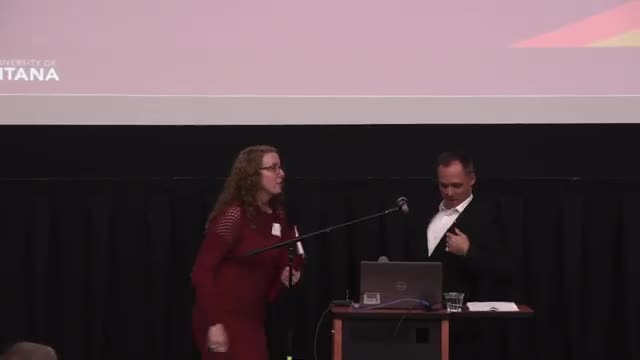Prague historian warns populism threatens EU cohesion, urges civic defenses
Get AI-powered insights, summaries, and transcripts
Subscribe
Summary
Dr. Martin Nicola, speaking at the Mansfield Center in Missoula, warned that economic strain, migration debates and social media-driven disinformation are strengthening populist parties across Europe and outlined four scenarios for the EU’s near-term future.
Dr. Martin Nicola, a Prague-based historian and political scientist, told a Missoula audience that rising populism — powered by economic anxieties, migration debates and social media — is straining the European Union and could reshape the bloc’s decision-making.
Speaking at the Maureen and Mike Mansfield Center at the University of Montana, Nicola framed the Czech Republic as a “small laboratory” where trends visible across Europe have intensified: increasing Euroscepticism, charismatic leaders who use direct marketing and media ownership, and widespread distrust of elites.
Nicola recounted how crises from Greece’s 2009 debt collapse to the 2015 refugee surge and Brexit exposed fault lines in the EU. He described Andrej Babiš’s ANO movement as a case study in modern populism: a businessman who parlayed media ownership, retail-style campaigning and promises of immediate benefits into broad electoral support. “He was everywhere,” Nicola said, describing campaign tactics that included personal outreach and street events.
On the war in Ukraine, Nicola said the Czech Republic had offered protection and labor-market access to Ukrainian refugees — “more than half a million” by his account — and that many refugees joined the workforce after the pandemic, helping local economies. At the same time he warned that populist narratives have exploited economic strain to claim Ukrainians are a burden, a line of attack that fuels xenophobic and anti‑EU rhetoric.
Nicola also warned about information operations and Kremlin influence, saying disinformation and social-media dynamics are central to modern political contests. He noted that the EU has imposed many rounds of sanctions on Russia and is shifting toward stronger defense and energy diversification, moving away from heavy reliance on Russian gas.
Explaining decision-making bottlenecks, Nicola described how unanimity rules allow individual member states to block measures (he cited Hungary as an example) and summarized a commonly proposed alternative: qualified-majority voting, which by one formula would require 55% of member states representing at least 65% of the EU population.
Looking ahead, Nicola sketched four scenarios for the EU: a stronger populist presence in EU institutions; a fragmented Europe with slower policy-making; ‘managed populism’ in which populist leaders govern pragmatically; and an existential confrontation if populists dominate several large member states. He urged defense of civic institutions — universities, NGOs and independent media — as primary bulwarks against erosion of democratic norms.
The event concluded with a Q&A in which audience members pressed on social media’s role, education and whether criminalizing promotion of communism was justified in the Czech context. Nicola said that institutional protections and civic education are essential, and closed his remarks by quoting Václav Havel: “truth and love must prevail over lies and hatreds.”
The Mansfield Center hosted the lecture in partnership with the Franke Global Leadership Initiative; organizers invited further questions from virtual attendees after the live chat briefly malfunctioned.
